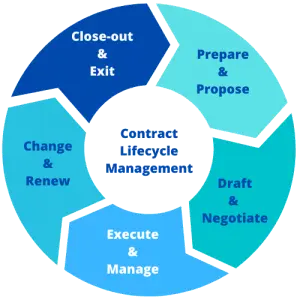We’ve previously written about the challenges of contract lifecycle management (CLM) adoption, advocating that legal departments take a more incremental approach to contract management. It’s crucial to first tackle the contract negotiation phase, the biggest time and resource sink in the CLM process, before attempting to implement CLM across multiple departments and stakeholders.
However, the recent influx of funding into legal AI startups and scale-ups, particularly in so-called “CLM 2.0” companies, suggests that investors may disagree.
Recent Bloomberg Law data supports our view. While the survey doesn’t focus specifically on CLM, the responses suggest that legal tech platform adoption is not as promising as it seems.
“Despite their popularity with in-house teams, in-house attorneys report considerably higher levels of dissatisfaction with contract lifecycle management tools compared to other widely adopted legal tech tools,” writes legal analyst Mario Guzman Oliveros.
According to a 2022 Onit survey, more than three quarters of in-house counsel (77%) experience failed technology implementations and indicate the most common factors contributing to the failure as lengthy processes (38%), overcomplicated solutions (36%) and technology unfit for their actual needs (33%).
Resistance to change, too many stakeholders, lengthy implementations, complex technology, and a lack of management support are all cited as reasons for technology adoption failure. The survey also highlights the human cost of these failures, which can undermine confidence in leadership, frustrate users, and even lead to employee turnover.
Meanwhile, CLM vendors are expanding their technology stacks, improving their messaging, and hiring experienced B2B enterprise software executives with strong sales skills. This creates a self-fulfilling prophecy.
In a blog post, Zach Abramowitz discusses the appeal of CLM to investors, corporates, consultants, and the general public. He predicts that successful legal tech tools will “focus on optimizing those aspects of CLM that reduce costs.”
However, as successful enterprise software vendors like Salesforce, SAP, and DocuSign know well, true growth comes from existing customers renewing and buying more. Losing a customer after a year is often worse than never having them at all. Customer churn is the bane of SaaS growth.
To avoid this, these companies focus on customer success with extreme rigor. They go above and beyond to ensure a great customer experience and drive renewals. One aspect of this is listening to customers and responding accordingly.
Research provides valuable insights into the reality of legal tech adoption. Legal tech companies need to pay attention and internalize these results. The discrepancy between the views of investors pouring money into legal tech startups and scale-ups and the reality of ROI and adoption on the ground will need to be addressed sooner or later for their substantial investments to pay off.
Negotiation: the most expensive aspect of CLM
Industry data on legal ops challenges around CLM validate our approach to the market when it comes to contract management. We believe that legal tech should be simple to use, from the user interface to the entire contract negotiation automation process.
Accordingly, we have designed our contract review AI tool with simplicity and ease of use in mind. We are also passionate about improving the public image of legal technology, which means building a narrative around customer success and ROI focused on “time to value.”
Our mission is to provide short implementation cycles, deliver value, and support our customers. We chose to focus on the most important and expensive aspect of the contract lifecycle: contract negotiation and redlining.
We believe that focusing on this task first and foremost, and then subsequently on post-execution, removes the friction from implementing legal tech and delivers faster and more tangible ROI to the business.
In fact, focusing on automating the contract negotiation phase to achieve quick wins can build confidence among users as the firm moves to adopt broader legal tech platforms like CLM.
Address the biggest CLM pain point first
The discrepancy between the optimism of legal tech companies and the reality of ROI and adoption on the ground means legal tech companies need to focus on customer success and ROI to justify the substantial investments made by legal departments and law firms. BlackBoiler’s contract review AI tool is designed with these principles in mind. To schedule a demo of BlackBoiler’s contract review software, click here.


